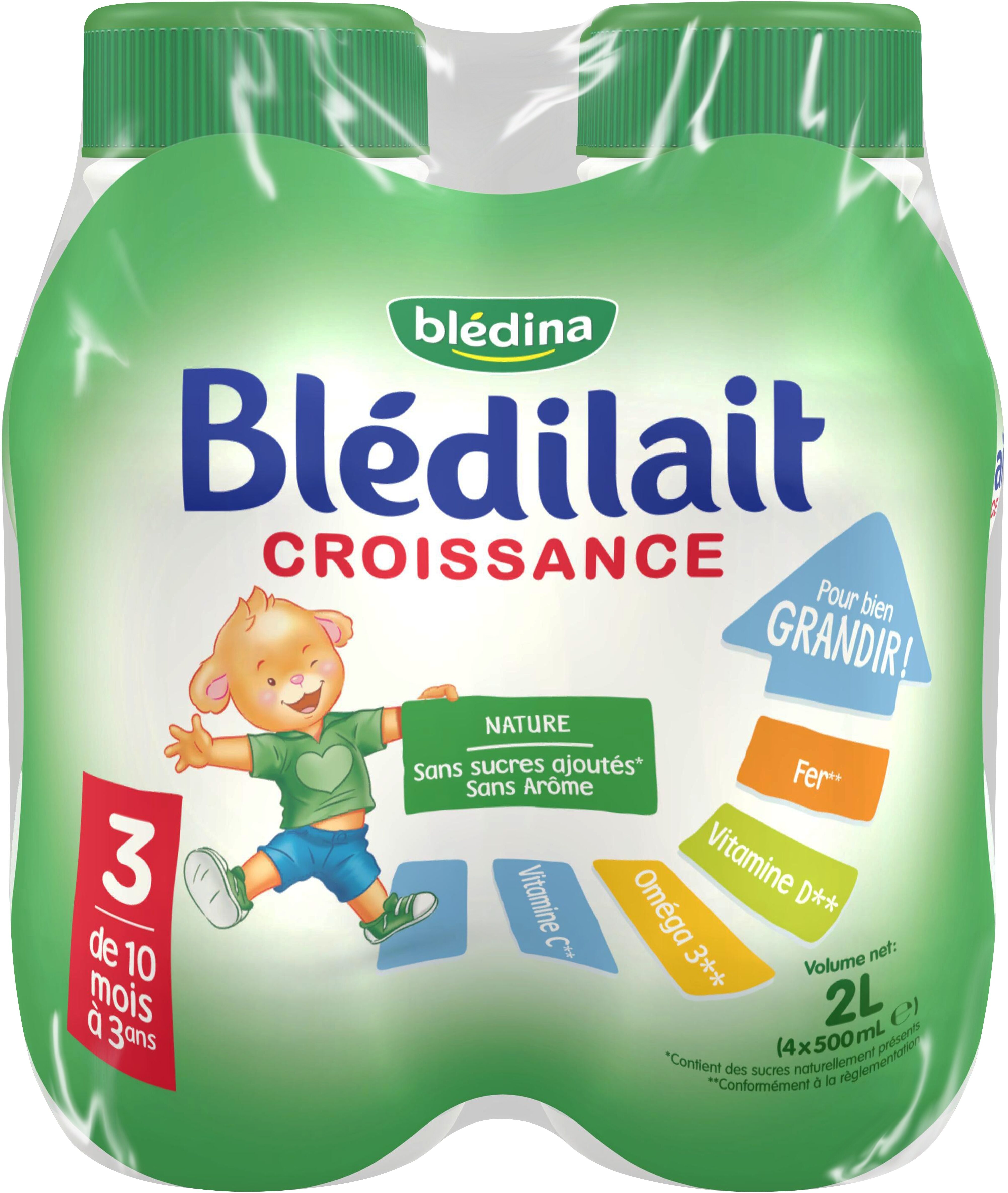BLEDINA BLEDILAIT 4X500ML CROISSANCE LIQUIDE NATURE De 10 mois à 3 ans - 2.06 kg
La page de ce produit n'est pas complète. Vous pouvez aider à la compléter en l'éditant et en ajoutant plus de données à partir des photos que nous avons, ou en prenant plus de photos à l'aide de l'application pour Android ou iPhone / iPad. Merci!
×
Certaines informations de ce produit ont été fournies directement par son fabricant BLEDINA .
Code-barres: 3041090001246 (EAN / EAN-13)
Dénomination générique : Lait de suite et aliment lacté liquide pour enfant en bas âge
Quantité : 2.06 kg
Conditionnement : Bouchon en plastique, Bouteille en plastique, Opercule en métal
Labels, certifications, récompenses : Sans sucre ajouté
Code de traçabilité : FR 59.580.030 CE - Steenvoorde (Nord, France)
Pays de vente : France
Correspondance avec vos préférences
Santé
Ingrédients
Transformation des aliments
Additifs
Analyse des ingrédients
Nutrition
Environnement
Emballage
Transport
Espèces menacées
Autres informations
Préparation : Il est important de bien respecter les instructions présentes sur la bouteille afin d'éviter des risques pour la santé de votre bébé. Préparer le biberon juste avant le repas. Cette préparation infantile est prête à l'emploi. Ne pas ajouter d'eau. A consommer à température ambiante ou tiède. Il est recommandé de consommer le biberon dans la demi-heure. Après la tétée, jeter le reste du biberon sans hésiter.
Conditions de conservation :
Avant ouverture, entreposer dans un endroit propre et sec.
Après ouverture, conserver refermé, 48 heures maximum au réfrigérateur.
Service consommateur : Service consommateur Blédina, 81 rue de Sans Souci 69576 LIMONEST Cedex
Signaler un problème
Sources de données
Le fabricant BLEDINA utilise CodeOnline Food pour transmettre automatiquement des données et des photos pour ses produits.
Les fabricants peuvent utiliser la plateforme gratuite pour les producteurs d'Open Food Facts pour accéder à ces données et les compléter, et obtenir des rapports, analyses et pistes d'améliorations des produits (par exemple meilleur Nutri-Score).
Produit ajouté le par kiliweb
Dernière modification de la page produit le par roboto-app.
Fiche produit également modifiée par openfoodfacts-contributors, org-bledina, packbot, yuka.WVprNUw1WXFvcWt3bi9CbXpDejF3UFFvdzZhNWNqT1pBUEFBSWc9PQ.






